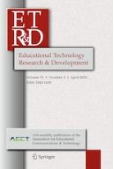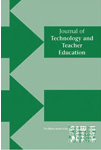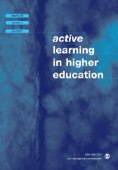Associate Professor Sarah Jane Prestridge is a digital technologies expert and is passionate about the learning potential and student development opportunities that digital educational technologies afford. Sarah has been named the top scholar in Australia in teacher and teacher education, for both 2020 and 2021, recognising her breadth and depth of high-quality research publications.
 Formally a primary school teacher, she is now program director on the Bachelor of Education at Griffith University, working with pre-service teachers in the digital technologies.
Formally a primary school teacher, she is now program director on the Bachelor of Education at Griffith University, working with pre-service teachers in the digital technologies.
Sarah completed her Masters in Education Technologies around the time the Queensland Department of Education was bringing out the minimum standards for teachers and her PhD was on models of professional development that transform teaching and learning with technology.
Sarah says:
“Technology is a passion of mine. I remember having one, big old clunky computer in my classroom when I was teaching year 6. We were using a simulation on a castle and students would do creative writing as they moved through the castle.”
Sarah was an early explorer of virtual worlds like Second Life back in the 2000’s and now is still exploring how to teach in virtual worlds in a new virtual platform called iSee. She has developed the professional materials to help teachers teach virtually.
Recently, Sarah presented a keynote at the Society for Information Technology and Teacher Education Conference with a key focus being changes required in online teaching approaches.
On this, she says:
“Teaching online is different to teaching in a classroom. If we can think about designing engagement opportunities for students to interact with content, the interface and each other, then we start to harness the different types of opportunities available.”
Sarah has developed a set of digital teaching principles, to guide teachers working in this space. These principles are designed to engineer student engagement and to structure professional learning for teachers. These have been adopted by the Department of Education (Qld).
When using digital technologies, Sarah believes it is important to ask questions to know how to engage in online spaces.
“Everybody is responsible for the continuation of learning. We need to think about supporting learning online from primary school to University. We need to think about how we are using digital tools and online spaces. I always ask certain questions, like, why would I use this tool? What does it offer for teaching and learning? What does the environment afford? What learning contexts would I use it in and why? How do I help students engage online with these tools“
Sarah believes that the COVID 19 disruption provided opportunities to rethink how we are educating our students and shift our thinking to the future.
“Schools are going to change. Whether that means becoming fully or partially online is yet to be seen. At the same time, pedagogy has to change. We have to unlearn in order to re-learn. The unlearning is just as important.”
Sarah loves the rich opportunities this work provides to work with teachers and reshape the way they engage with young people. She sees lots of opportunities to make students active participants in their lives and in their learning, as online “everyone is equal, there are no hierarchies.”
To read more about Sarah’s fascinating work in this area please see:
 New alignments for the digital age: insights into connected learning
New alignments for the digital age: insights into connected learning
 Teaching in a 3D Virtual World – Defining Teacher Practices
Teaching in a 3D Virtual World – Defining Teacher Practices

Play like a team in teams: A typology of online cognitive-social learning engagement


